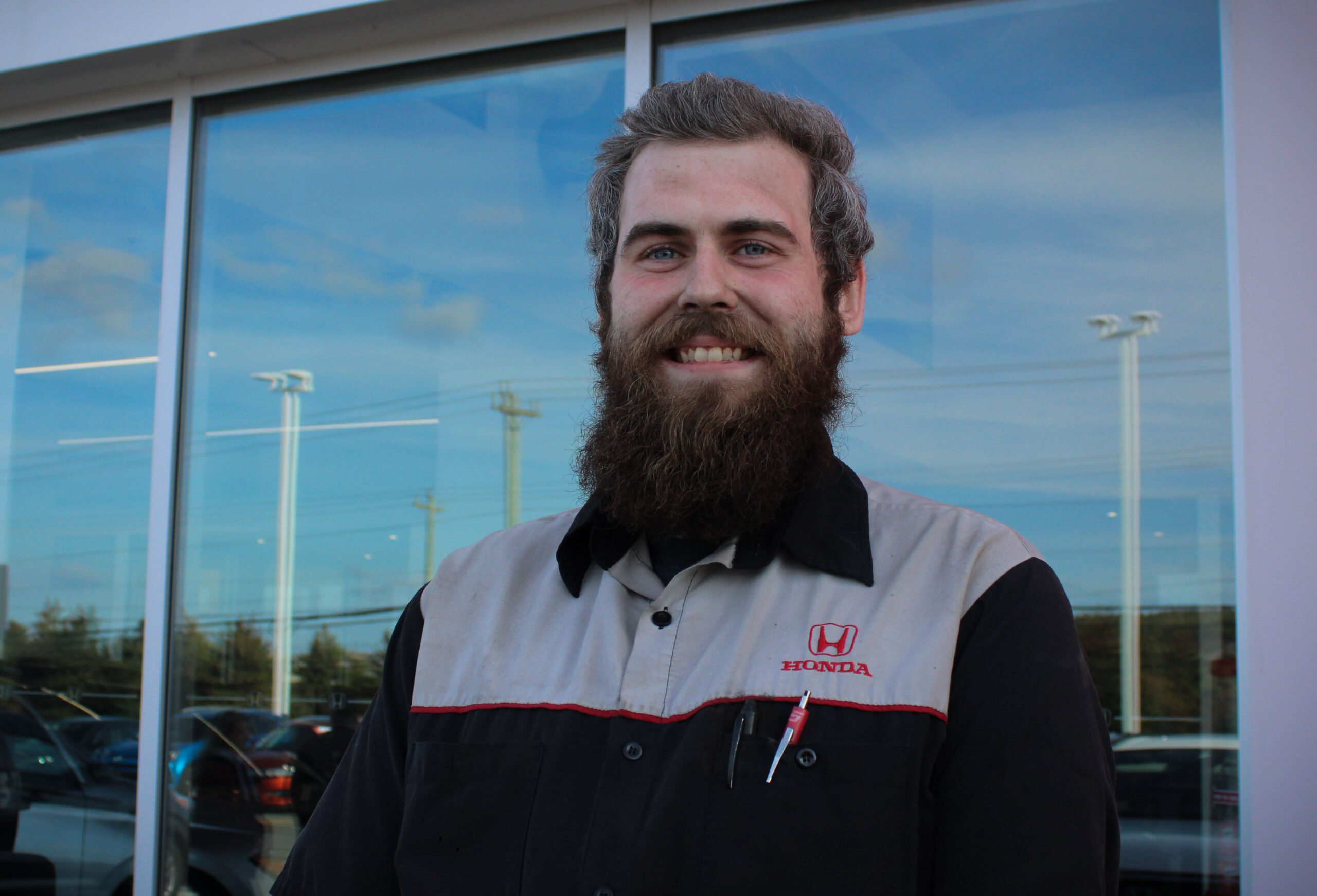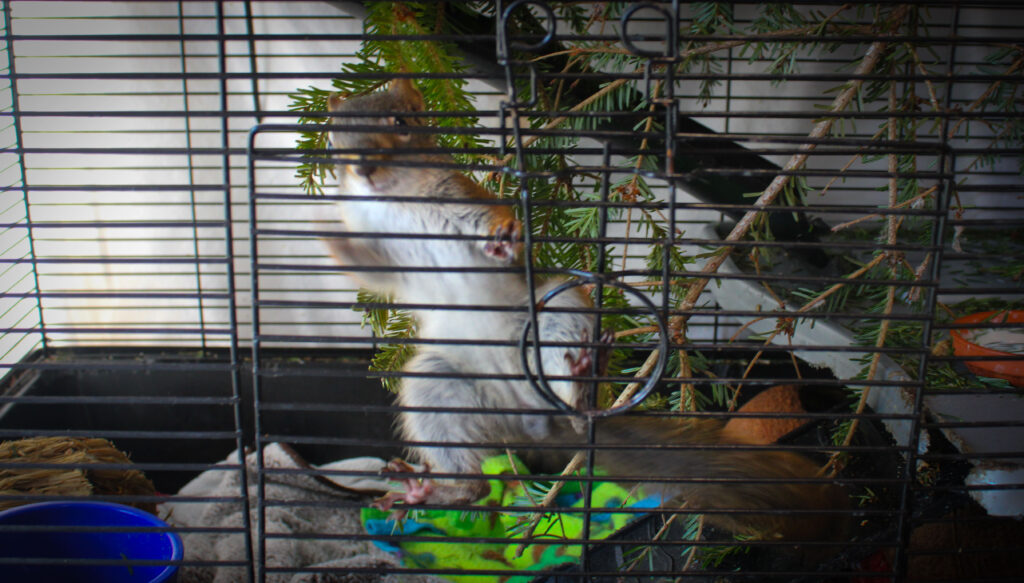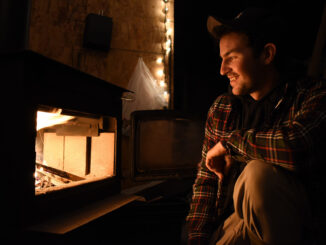When it comes to injured animals, even tough guys can show a softer side.

Ariyana Gomes
Kicker
Steven Burgess, a mechanic at a Steele Honda, was absorbed by his daily tasks when moments later, he noticed curious coworkers huddled together just outside the service bays, gazing at the ground.
It was a rather gloomy day, the grass soaked by relentless rain, when three small creatures were found seeking refuge inside the air filter of a car.
There they were. Two drenched and frozen baby squirrels – the third had already died.
“I couldn’t stop thinking about them.”
Steven Burgess
“They didn’t even have their eyes open,” said Burgess.
Much like his other peers, Burgess quietly went back to finish the work at hand, but his mind was someplace else.
Although he wasn’t the first to discover the furry infants, he says he couldn’t just abandon them out on the wet, muddy grass.
“I couldn’t focus on work,” said Burgess. “I couldn’t stop thinking about them.”
His concern for the little critters, says Karen Gosse, is a rarity. Gosse owns The Rock Wildlife Rescue in Torbay.
Small creatures, she says, often nest in warm places such as under a car hood in the engine compartment.
“Some feel it’s not cool to rescue a small animal,” said Gosse. “They think it makes them soft and weak.”
Over the past year, Gosse says several construction workers stepped forward offering to help injured or orphaned creatures but held off until their peers left the work site.
“They don’t have the same value anymore.”
Karen Gosse
“This is common, especially among male crews,” said Gosse. “Many of them are afraid because they’d be made fun of or bullied by their co-workers.”
Stories of construction workers throwing wild bird eggs and baby pigeons in the garbage are not rare, she says.
It’s harrowing, she says, to see how larger animals such as dogs and cats get the opposite treatment from the same people who refuse to save pigeons, seagulls, crows, or squirrels.
“Unfortunately, with humans, if (animals) don’t serve us in a certain way, we view them as nuisances,” said Gosse. “They don’t have the same value anymore.”
Burgess, the squirrels’ saviour, faced a similar reaction when he decided to carry the newborns to safety.
“Some people weren’t very happy,” Burgess said of his coworkers.
“But that didn’t stop me from doing what felt right.”
As the workday came to an end, Burgess, with hands nearly black from grease and a day’s work, went looking for the newborns. He gently put the two furry creatures in a cardboard box and carried them home.
When he got home, he put the box on top of his water heater to keep them warm. He and his girlfriend then fed the squirrels with a syringe.
In the meantime, volunteers from The Rock Wildlife Rescue arrived to bring the frail little creatures to the the shelter.
They were both hypothermic and only one survived.

It’s been over a month, Gosse says, and the lone survivor has since recovered from her respiratory infection.
“She put in a good fight,” said Gosse.
Even though animals are usually released into their natural habitat once they recover from their injuries, the one-month old squirrel will spend the winter at the rescue.
Gosse says squirrels need a nesting place and a stash of food to survive the winter season. It never had a chance to do that and would likely not survive the winter.
In his six years of working with cars, Burgess says this was the most unexpected experience he encountered, yet it was incredibly heart-warming.
“I told him, we need more men like you because compassion knows no bounds.”
Karen Gosse
This isn’t the first rescue story that left a lasting impression on Karen Gosse.
Two summers ago, she took care of an injured duck that was hit by a car on a highway just outside of St. John’s.
“A big, tough guy showed up (on) a bike,” said Gosse. “Under his thick black jacket was a wounded, bruised duck.
“His friends poked fun, asking ‘are we having ducks for supper?’, but he stood up against it.
I told him, we need more men like you because compassion knows no bounds.”




Be the first to comment